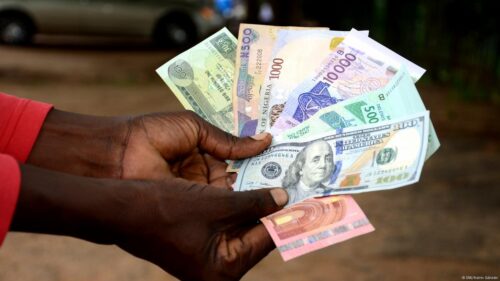For African startups, the rising inflation and currency devaluation across the continent present a new challenge: how to manage revenues and attract investments in a volatile economic landscape. With many startups raising funds in foreign currencies, the devaluation of local currencies often means declining reported revenues, despite actual business growth. This issue raises an important question: Should African startups begin fundraising in local currencies?
African startups have experienced exponential growth in funding over the past decade. According to Partech, VC funding rose from $277 million in 2015 to $6.5 billion in 2022, marking an increase of over 2,000%. However, 2023 has seen a downturn, with startups raising only $1.6 billion year-to-date. Compounding the funding challenges are the declining values of local currencies. For instance, the Nigerian Naira has depreciated by 67% against the dollar since June 2023, and the Egyptian Pound has lost 50% of its value since February 2022.These devaluations create a paradox for startups that report revenues in dollars. For example, a Nigerian company generating ₦100 million in revenue would have reported $216,450 in January 2023. By December, that same amount would be worth just $110,987 due to exchange rate shifts. This makes it harder for startups to showcase growth to investors, particularly foreign ones.
The Case for Local Currency Fundraising.
Some investors argue that raising funds in local currencies could help startups avoid the risks of fluctuating exchange rates. Bolaji Balogun, CEO of Chapel Hill Denham, believes that startups earning in local currencies but raising foreign capital are often misjudged in dollar terms. Fundraising in local currencies, he argues, would align better with the realities of local economies and make it easier to return investments.Startups that raise funds locally could also foster a more sustainable entrepreneurial ecosystem by reducing overreliance on foreign investors. In 2021, more than 74% of investors in Africa’s top 20 funding deals were foreign. Developing a stronger local investment landscape could protect startups from global funding cycles and external economic shocks.
Challenges to Local Currency Fundraising.
Despite the potential benefits, there are significant hurdles to raising funds in local currencies. Local venture capital industries are underdeveloped across the continent, with most African VCs raising their capital in dollars. According to Adedeji Olowe, founder of Lendsqr, many local investors lack the sophistication or economic stability to invest in startups.Additionally, startups often incur costs in foreign currencies, particularly for software, equipment, and international expansion. As such, foreign investments remain attractive because they offer startups access to a global pool of investors and increase their chances of follow-on funding or international exits.
Building a Local Investment Ecosystem.
Building a robust local investment ecosystem will require both investor education and structural reforms. Oswald Osaretin Guobadia, a former senior special assistant on digital transformation in Nigeria, emphasized the importance of providing incentives for local investors. The Nigeria Startup Act, for example, offers incentives for angel investors and credit schemes to encourage local funding.In the long term, institutional investors such as pension funds could play a significant role. Nigeria’s pension assets, valued at ₦16.7 trillion (over $20 billion), have the potential to grow to ₦100 trillion in 7–10 years. Balogun believes that as startups mature and demonstrate profitability, more domestic capital will flow into the ecosystem.
A Balanced Approach
While raising funds in local currencies could shield startups from exchange rate shocks, it is not a one-size-fits-all solution. African economies must stabilize to make local currency investments viable. Additionally, fostering collaboration between local and foreign investors could provide startups with the best of both worlds: access to global capital and protection from currency risks.In an era of funding scarcity, startups must weigh the pros and cons of local versus foreign fundraising. By diversifying their capital sources and building profitable, resilient businesses, African startups can navigate the challenges of economic volatility and create a sustainable future for the continent’s tech ecosystem.




